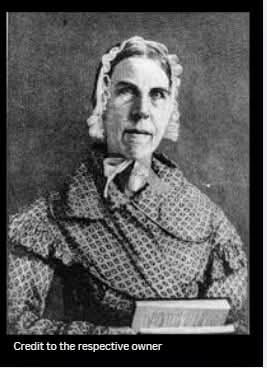It’s hard to imagine the sheer force of will it must have taken for a woman like Sarah Moore Grimké. Born into immense privilege in 1792, she had every reason to accept the world as it was. Her wealthy South Carolina family’s comfort was built on the backs of the enslaved people they owned. But from her earliest days, Sarah’s conscience rebelled. She felt a deep, simmering anger at the injustice of slavery, alongside a frustration at being told what she, as a girl, could not do—like become a lawyer.
That fierce sense of right and wrong could not be contained. Picture her as a young woman, lying flat on her stomach by the fire with her little waiting maid, the door locked and the keyhole covered. Under the dim light, with a spelling book between them, they were committing a revolutionary act. Teaching a slave to read was a crime, and she described feeling an “almost malicious satisfaction” in defying it. That image reveals so much about her: the bravery, the defiance, and the deep understanding that knowledge was a path to freedom.
That feeling of being a prisoner in her own home only grew stronger. In her twenties, she made the incredible decision to simply walk away. She later wrote of “deserting the home of my fathers to escape the sound of the lash and the shriek of tortured victims.” Can you feel the weight of that? To leave everything you’ve ever known, not for adventure, but for peace of mind, for the chance to breathe without the constant horror around you. She settled in Philadelphia with the Quakers and found her voice, becoming a powerful speaker who forced Northern audiences to face the brutal reality of the “Southern prison-house” she had escaped.
And she didn’t go alone. She returned to Charleston on a mission to “save” her younger sister, Angelina, and bring her north. Together, the Grimké sisters became an unstoppable force, their voices a clarion call for abolition. But Sarah’s story holds another layer—a lifelong commitment to living her values. Late in life, she discovered a profound family secret: her deceased brother had three sons with an enslaved woman named Nancy Weston. Instead of turning away, Sarah immediately embraced them as family. She supported her nephews, Archibald, Francis, and John, and funded their educations. Archibald would go on to become a renowned journalist and civil rights leader who graduated from Harvard, and Francis attended Princeton Theological Seminary. At a time when many would have hidden the truth, she chose love and legacy.
Her greatest insight was seeing the undeniable thread connecting different struggles for freedom. She argued passionately that the fight to end slavery and the fight for women’s rights were one and the same. In her groundbreaking “Letters on the Equality of the Sexes,” she didn’t simply call for equality; she tore down the entire system that denied it. She reserved some of her strongest words for the slave owners who preached Christianity while inflicting unspeakable cruelty, pointing out that “the virtue of female slaves is wholly at the mercy of irresponsible tyrants.”
She understood that a system built on owning people’s bodies could never respect the rights of any woman, Black or white. Her work ignited a fire that would fuel the suffrage movement for generations, inspiring giants like Lucy Stone and Elizabeth Cady Stanton.